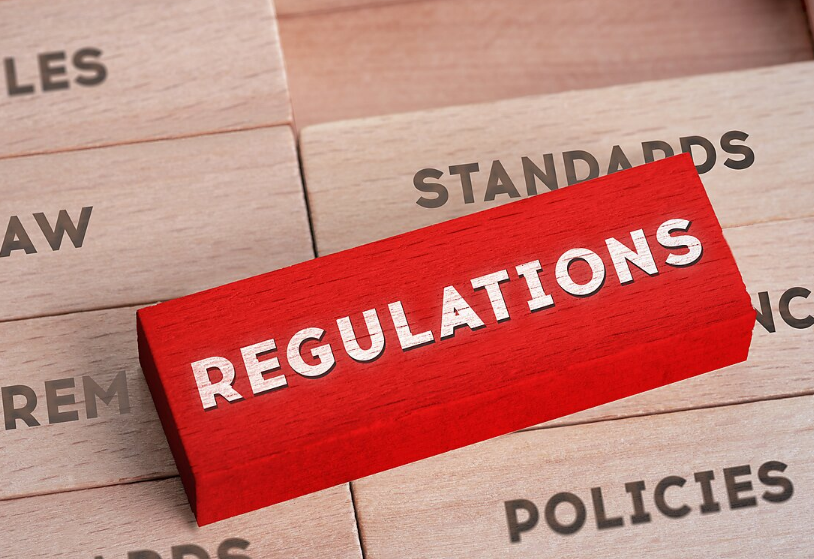A top Nevada gaming official just dropped a bombshell warning to prediction market giants Kalshi and Crypto.com, calling their sports contracts nothing but disguised gambling. “The gig is up,” declared board member George Assad, signaling a crackdown that could reshape betting rules nationwide. But why now, and what does this mean for users betting on game outcomes?
The Stark Warning from Nevada’s Gaming Watchdog
Nevada Gaming Control Board member George Assad did not hold back. In a recent statement, the retired Las Vegas judge targeted companies like KalshiEx LLC and Crypto.com for offering contracts tied to sports results. These deals let people bet on things like who wins a football game, much like traditional sports wagers.
Assad’s message was clear: such contracts won’t fly in Nevada without proper gambling licenses. He praised court rulings that are starting to side with regulators, putting these firms on notice. This comes amid growing scrutiny over whether these prediction markets are really financial tools or just sneaky bets.
The board’s stance aims to protect the state’s massive gaming industry, which rakes in billions each year. Nevada, home to Las Vegas, leads the U.S. in legal gambling, and officials worry these unregulated contracts could siphon off revenue and dodge taxes.
One key issue is how these contracts mimic sports betting. Users buy into yes or no outcomes on events, profiting if they guess right. Assad’s warning highlights a push to enforce strict rules, especially after recent legal wins for the state.

How Kalshi and Crypto.com Got Tangled in This Mess
Kalshi, a prediction market platform, has been fighting to offer sports contracts legally. Earlier this year, a federal judge in Nevada granted Kalshi a temporary win, allowing some operations. But that ruling drew fire, and now the state is pushing back hard with new motions for more details from the company.
Crypto.com, known for crypto trading and sponsorships, jumped into sports prediction markets too. The firm has deals worth over $1 billion in sports, including a big arena naming rights in Los Angeles. Yet regulators are probing if their Super Bowl markets break derivatives rules.
Both companies argue their products are swaps under federal law, not gambling. But Nevada sees it differently, claiming they need state licenses to operate there. This clash pits innovation against regulation in a fast-growing field.
Recent court decisions show the tide turning. For instance, a judge denied Crypto.com’s bid to keep offering contracts without licenses, contrasting an earlier nod to Kalshi. This inconsistency fuels the debate, with experts watching closely.
Posts on X, formerly Twitter, buzz with reactions. Users debate if these markets are smart finance or just gambling in disguise, with some posts gaining thousands of views.
Legal Battles Heat Up Across States
The fight is not just in Nevada. Ohio shut down similar markets on platforms like Kalshi and Robinhood this spring, calling them a threat to regulated betting. Michigan launched a probe too, worried about consumer risks and lost taxes.
In Nevada, the board seeks internal docs from Kalshi about their sports deals’ economic impact. The state argues these firms refuse to hand over key info, stalling cases. This could lead to bigger fines or bans.
Federal oversight adds layers: the CFTC is eyeing how these contracts fit under commodity rules. A Nevada judge ruled that contracts based on game outcomes, not just if events happen, do not count as protected swaps.
Here are some key legal points at play:
- Prediction markets must prove they are not gambling to avoid state laws.
- Courts are splitting: some allow limited operations, others demand licenses.
- Regulators fear match-fixing risks if unchecked.
These battles could set precedents. If Nevada wins big, it might inspire other states to clamp down, affecting millions who use these apps for quick bets.
A table of recent actions shows the pattern:
| State | Action Taken | Date | Impact |
|---|---|---|---|
| Nevada | Warning issued to firms | October 2025 | Potential bans |
| Ohio | Shut down markets | April 2025 | Lost access for users |
| Michigan | Formal investigation started | April 2025 | Tax revenue concerns |
This data, from state regulator reports, underscores a nationwide pushback.
What This Means for Bettors and the Industry
Everyday users might feel the pinch first. If platforms like Kalshi and Crypto.com get restricted, options for betting on sports via apps could shrink. That hits casual fans who enjoy predicting scores without hitting a casino.
The industry faces a shake-up too. Sports betting exploded after a 2018 Supreme Court ruling, with U.S. wagers topping $100 billion last year, per American Gaming Association stats from 2024. Prediction markets, a smaller slice, grew to millions in trades, but regulation could cap that.
Assad’s “gig is up” line echoes past crackdowns, like Nevada’s 2015 ban on unlicensed daily fantasy sites. Back then, big names had to get permits or leave, reshaping the market.
Innovation might suffer, but supporters say rules ensure fair play. One surprise: even with crypto ties, these firms started with gambling licenses in places like Curacao, now fighting for U.S. legitimacy.
Looking ahead, talks with the CFTC could clarify boundaries. For now, the warning serves as a wake-up call for firms blending finance and betting.
This Nevada showdown exposes the blurry line between smart investing and plain old gambling, a tension that’s only growing as apps make betting easier than ever. It affects everyone from Vegas high-rollers to phone users placing quick wagers, potentially shifting billions in revenue and forcing companies to adapt or fold. As a journalist who’s covered gaming wars for decades, I see this as a pivotal moment that could redefine fair play in America’s betting boom.
Leave a Reply